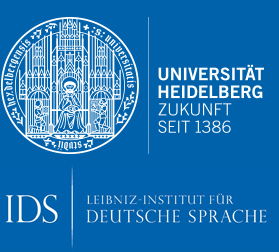Here you will find the abstracts of the articles published in the Online Handbook. These articles discuss concepts that are inductively deduced from linguistic cultures and include fundamental language-critical topics such as “language criticism and language norms”, “language criticism and standardization”, “language criticism and language purism”, “language criticism and language institutions” as well as “language criticism and language ideologies”. You may access the comparative articles reflecting these topics by means of language comparisons and cultural comparisons (for German, English, French, Italian, and Croatian) via the tab “language criticism in European comparison”.
Recent article:
Language Ideologies and Language Criticism in Croatian
Abstract. In the development of the Croatian language, every modern-era phase has been shaped on a macro-level by ideology. During the Renaissance of the 16th century, in keeping with prevailing ideology, the regional language variants of the coastal regions of Dalmatia were elevated to the status of literary standard languages, thus establishing them as indigenous and equal in status to the other standard languages. The full range of variants was incorporated into the new literary language and were stylistically differentiated through their manner of usage. From the 16th century on, a Kajkavian dialectal literary language also emerged in the northwest. In later centuries, this became supra-dialectal, but remained outside the standard established in the late 19th century, subsequently appearing only sporadically. In the 16th century, a Chakavian literary language with dialectal variants emerged on the Adriatic coast. In the 17th century, the situation was quite different. At that time, the Chakavian and Shtokavian dialects, and later, also the Kajkavian dialect, including their various expressions, were considered components of a single language and bearers of the same supra-regional identity. Since that time, efforts have been made to unify the dialects, from Chakavian and Shtokavian to even a hybrid language devised by writers (members of the ‘Ozalj Circle’) in the west, on the Chakavian-Kajkavian-Shtokavian border. The notion of a common lexical system led to integrative dictionaries and, occasionally, to hybrid grammatical solutions. Moreover, the language was standardised in the 17th century by order of Rome, as part of the Catholic Counter-Reformation. This expedient standard was not exactly inclusive; it was an abstract, historically and literarily reconstructed language standard that allowed variants to be used as equally valid options. This standard was created for the translation of biblical texts and was used to create and substantiate identity. At the beginning of the 19th century, the political and cultural ideology of the national language emerged as a new factor. Now, the preferred linguistic standard was no longer abstract, but anchored in the cultural history and political ideal of the nation-state. In the 20th century, the common language of the Croats and Serbs (ignoring the Bosnians, Herzegovinians and Montenegrins), which, to an extent, had been forcibly standardised, served the political ideology of the multi-ethnic state that emerged following the First World War. It persisted under communism after the Second World War, until 1991. Since the late 1960s, single-language standardisation revivals, especially in Croatia, laid the groundwork for the national and linguistic ideology that ultimately led to the collapse of the multi-ethnic state of Yugoslavia. Post-Yugoslav language ideology can be traced back to the
historically recognised roots of language, complementing the historically delineating construction of identity by differentiating it from competing variants.
Read and download the complete quotable article here.
Click here to read the article “Language Ideologies and Language Criticism in European Perspective”
Language institutions and language criticism in Croatian
This abstract and article are only available in German and Croatian.
Read and download the complete quotable article here in German and here in Croatian.
Linguistic purism and language criticism in Croatian
This abstract and article are only available in German and Croatian.
Read and download the complete quotable article here in German and here in Croatian.
Click here to read the article “Linguistic purism and language criticism in European perspective”
Standardisation and language criticism in Croatian
This abstract and article are only available in German and Croatian.
Read and download the complete quotable article here in German and here in Croatian.
Click here to read the article “Standardisation and language criticism in European perspective”
Critique of language norms in Croatian
This abstract and article are only available in German and Croatian.
Read and download the complete quotable article here in German and here in Croatian.
Click here to read the article “Critique of language norms in European perspective”

